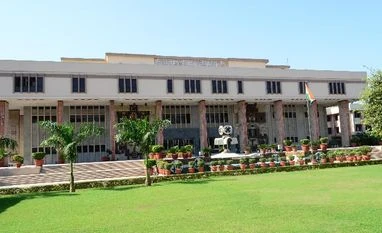PIL in Delhi HC seeks direction to prohibit forcible religious conversion
A Public Interest Litigation (PIL) has been moved in Delhi High Court seeking appropriate direction to the Centre and Delhi Government to prohibit forcible religious conversion by intimidation
)
Delhi High Court
A Public Interest Litigation (PIL) has been moved in Delhi High Court seeking appropriate direction to the Centre and Delhi Government to prohibit forcible religious conversion by intimidating, threatening and deceivingly luring through gifts and monetary benefits and by using black magic and superstition.
The Petition submits that religious conversion by "the carrot and the stick" and by hook or crook" not only offends Articles 14, 15, 21, 25, but also against the principles of secularism, which is an integral part of the basic structure of the Constitution.
The petitioner Ashwini Kumar Upadhyay, practising lawyer and BJP leader states that Centre and Delhi Government have failed to control the menace of black magic superstition and deceitful religious conversion, though it's their duty under Article 51A and seeks issuance of direction to the Centre to ascertain the feasibility of appointing a committee to suggest the changes in Chapter-XV of the Indian Penal Code or to draft a Conversion of Religion Act.
The plea stated, "the injury caused to the public is extremely large because there is not even one district which is free of black magic, superstition and religious conversion. Incidents of massive religious conversion are being reported every day as the religious conversion is continued by intimidating, threatening, deceivingly luring through gifts and monetary benefits and by using the black magic, superstition, miracles."
The Petition submitted that the Centre and State is empowered to make special provisions for the benefit of women and children (Article 15). Also, freedom of conscience, free profession, practice & propagation of religion (Article 25) is subject to public order, morality, health and other provisions of Part-III.
Moreover, the directive principles are affirmative instructions to secure socio-economic political Justice; Liberty of thought expression belief, faith and worship; Equality of status and opportunity and to promote among them fraternity, assuring the dignity of individuals, unity, and integrity. But Centre and State have not taken appropriate steps to secure the high ideals outlined in Preamble and Part-III, plea stated.
The Anti-Conversion laws passed by numerous State legislatures aim to criminalize a wide range of speech by those sharing their religious beliefs with others, whether they hope their listeners to convert or not. Praying for healing of a sickness or offering help in the form of food or water after a natural disaster could be allurement or inducement in order to adopt the beliefs of the other religion, read the plea.
(Only the headline and picture of this report may have been reworked by the Business Standard staff; the rest of the content is auto-generated from a syndicated feed.)
More From This Section
Don't miss the most important news and views of the day. Get them on our Telegram channel
First Published: Jul 24 2022 | 3:58 PM IST
